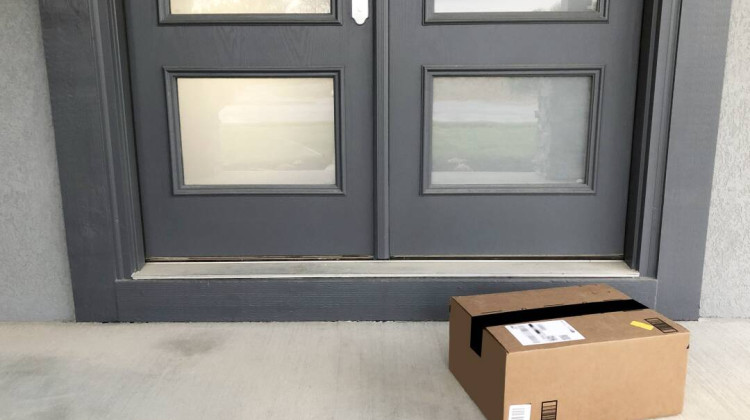INDIANAPOLIS (AP) — Anxiety, depression and other mental health conditions have become more prevalent among Hoosiers since the onset of the coronavirus pandemic, the state's top health officials said in calling for renewed attention on mental health resources.
Many of those reporting mental health woes are affected by COVID-19 itself, Jennifer Sullivan, secretary of the state’s Family and Social Services Administration, said during Gov. Eric Holcomb’s weekly briefing Wednesday on the state’s coronavirus response.
That includes dealing with loss and fear, disruption to daily life with recurrent needs for quarantine and isolation, changes to school and work schedules, unexpected illness of friends and family, and disruption to normal social supports.
Cold weather and the holiday season, too, have likely added difficulties for people with existing mental illnesses and those experiencing acute stress, she added.
“The effects of COVID-19 are uncovering or exacerbating existing mental illnesses, minor or severe, that people didn’t know they had,” Sullivan said. “These need to be taken seriously and professional help sought.”
As a way to help, Sullivan encouraged Hoosiers to use the state-run BeWellIndiana.org to take a mental health self-assessment. Since April, more than 25,000 Hoosiers — many of them under 25 years old — have completed those assessments.
For more than three-quarters of those taking the surveys, there was confirmation of a mental health diagnosis, Sullivan said. Of those, 57% had not been previously diagnosed with a mental health condition and were not receiving any treatment at the time of the assessment.
More than half of all self-screenings additionally confirmed a moderate to severe presence of depression, bipolar disorder or anxiety — the three top mental health issues related to suicide, Sullivan said. Asked to identify what was contributing to their mental health problems, the top three responses were loneliness or isolation, past trauma, and relationship problems.
“What this says to me is that we have young people with new and serious mental health conditions,” Sullivan said. “We have a responsibility and an opportunity to make sure that we support these individuals so that their mental health needs are met now and do not become chronic.”
In addition to state resources online, those seeking resources can also call 211 or 866-211-9966 to speak to a trained crisis counselor 24 hours a day for free, or text HOME to 741-741 to get help.
The call line has already received more than 6,000 calls this year, Sullivan noted, with the majority of callers between ages 40 and 64. Crisis counselors have so far referred 29% of those callers to mental health treatment and connected more than 1,000 people to resources for food, clothing, housing support or utility assistance.
“Please realize that it’s OK to reach out for help. And to help others around you to get through this, too, encourage them to seek help through these resources," Sullivan said. “Know that it’s OK not to be OK.”
 DONATE
DONATE







 Support WFYI. We can't do it without you.
Support WFYI. We can't do it without you.